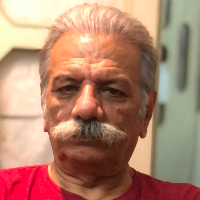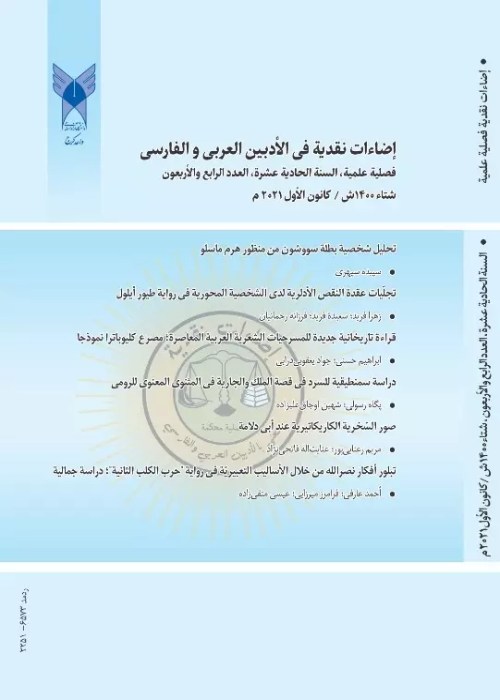Freedom in the Epic Poems of Mahmoud Darwish and Ahmed Shamlou According to Jean Paul Sartre's viewpoints
Author(s):
Article Type:
Research/Original Article (دارای رتبه معتبر)
Abstract:
The concept of freedom is one of the most frequent concepts of modern epic poetry, which has found different meaningful dimensions due to the extensive social and political developments. With the growth of philosophical schools, especially the philosophy of existentialism, the concept of freedom became one of the most important categories in contemporary life, and the humanistic and existentialist approach provided the ground for intellectual and social revolutions. Jean-Paul Sartre, French philosopher, one of the founders of existentialism had crucial role on the existential thoughts and had deep effects on the thoughts of literary writers. Mahmoud Darvish, Palestinian resistance poet, and Ahmad Shamloo, Iranian contemporary modernist poet, are prominent poets whose poems reflect the concept of freedom, the study of their poems reveals their philosophical an existential dimension. The present study with a glance to Sartre's theories, tries to do a comparative study of Darwish and Shamloo's ideas about freedom, in order to analyze the similarities and differences between their poems and express the manifestations of Sartre's thought in the viewpoint of these poets. According to the present study, the concept of freedom in the attitude of Shamloo and Darwish has a philosophical dimension that is not limited to individual freedom and includes the whole society. The concept of freedom in their worldview, is consistent with the categories of precedence existence over the nature, apprehension and responsibility, negation of metaphysical forces, the instability of nature, and the relationship between death and freedom in Sartre's theory.
Keywords:
Language:
Arabic
Published:
Rays of Criticism In Arabic & Persian, Volume:13 Issue: 49, 2023
Pages:
133 to 152
https://magiran.com/p2620822
سامانه نویسندگان
مقالات دیگری از این نویسنده (گان)
-
A comparative study of imagery in the broken poems of Qajar and Mahmoudsami Al-Baroudi
Nader Eftekharzadeh, Abdolhosein Farzad *, Farideh Mohseni Hanjani
Journal of Contemporary Literature, -
Reflecting the socio-political conditions of Tunisian and Iranian Muslims in the poems of Abolqasem al-Shabi and Mirzadeh Eshghi and explaining its geopolitical dimensions.
Mohammadehsan Rahmani, Zahra Khosravi *,
Quarterly of Geography (Regional Planing),



